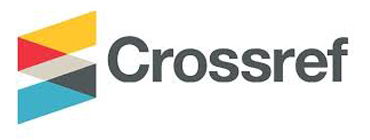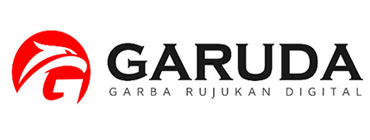THE INFLUENCE OF EMOTIONAL LITERACY MATERIAL GROUP GUIDANCE SERVICES ON INCREASING SELF-EFFICACY IN CLASS X MAN 1 MEDAN STUDENTS
Abstract
This research aims to determine the magnitude of the contribution of group guidance services to increasing self-efficacy in class X MAN 1 Medan students for the 2022/2023 academic year. This research uses a quantitative approach with a quasi-experimental type by looking at changes in research data between before and after treatment. The population in this study was 384 class X students, then the sampling technique used purposive random sampling so that the sample was 8 students. The instrument used is a questionnaire instrument with a Likert scale model. The results of the instrument validity test produced 29 valid items and the reliability was 0.905. Research data was analyzed using Pearson Product Moment Correlation.
The research findings show that with the correlation obtained from the SPSS output model summary 26.00, the results of the hypothesis test using the Product Moment Correlation test show an output of r = 0.989 with an Asymp.Sig value. = 0.000 (2-tailed) is smaller than < 0.005, then Ha is accepted. Here there is a positive correlation coefficient, which means that 10 students experienced an increase in student self-efficacy scores from the Pre Test score to the Post Test score. The difference in increase in Mean Rank or average increase is 30.00, the correlation coefficient is 0.989 with an influence level of 98.9% and the rest is influenced by other variables. Thus, it can be concluded that the implementation of Group Tutoring Services can have an influence on increasing the self-efficacy of class X students at MAN 1 Medan for the 2022/2023 academic year.
Full Text:
PDFReferences
Abimanyu, s dan Manhiru. M.T. 2009, Teknik dan Laboratorium Konseling. Makassar: Badan Penerbit Universitas Negri Makassar.
Alwilsol. 2004. Psikologi Kepribadian. Malang: UMM Pers.
Arikunto, Suharsimi. 2012. Prosedur penelitian Suatu pendekatan Praktek. Jakarta: Rineka Cipta.
Ghufron, Risnawati. 2019. Teori-teori psikologi. Yogyakarta: Arruz-Media.
Gunasra Singgih D. 2007. Konseling dan Psikotrapi. Jakarta. Gunung mulia.
Hartinah, Siti.2009. Konsep Dasar Bimbingan Kelompok. Bandung. Refika Aditama.
Irvan Usman, Meiske Puluhulawa & Mardia Bin Smith.2017. Teknik Modeling Dalam Layanan Bimbingan dan Konseling. Jurnal Bimbingan dan Konseling. Malang. Jawa Timur. Jakarta.
Latifun. 2008. Psikologi Konseling Malang: Universitas Muhammadiyah Malang.
Lilis Ratna. 2013. Teknik-teknik Konseling. Yogjakarta: DEEPUBLISH
Prayitno, Amti, R. 2016. Dasar-dasar Konseling dalam Teori dan Praktek: Jakarta: Asdi Mahasatya.
Prayitno. 2017. Konseling Profesional Layanan dan Kegiatan Pendukung. Jakarta: Asdi Mahasatya.
Romlah, Tatik. 2001. Teori dan Praktek Bimbingan dan Konseling. Malang: Universitas Negri Malang
Rusmana, Nandang.2009. Bimbingan dan Konseling Kelompok Di Sekolah. (Metode, Teknik Dan Aplikasi). Bandung: Rizkqi Press.
Shaleh A.R. 2004. Psikologi Suatu Pengantar Presefktif Islam. Jakarta: KECANA .
Sa'ud, U. S., & syamsuddin Makmun, A. (2007). Perencanaan pendidikan: Suatu pendekatan komprehensif.
Sugiyono. 2016. Metode Penelitian Pendidikan Pendekatan Kuantitatif, Kualitatif, dan R&D. Bandung: Alfabeta.
Tohirin. 2007. Bimbingan dan Konseling di Sekolah dan Madrasah. Jakarta: Raja
Wibowo, Mungin Eddy. 2005. Konseling Kelompok dan Perkembangan. Semarang UPT Universitas Negri Semarang.
Refbacks
- There are currently no refbacks.

This work is licensed under a Creative Commons Attribution-NonCommercial-ShareAlike 4.0 International License.
INDEXING
Bright Vision by UIN Sumatera Utara Medan is licensed under a Creative Commons Attribution-NonCommercial-ShareAlike 4.0 International License.
Based on a work at http://jurnaltarbiyah.uinsu.ac.id/index.php/brightvision.









